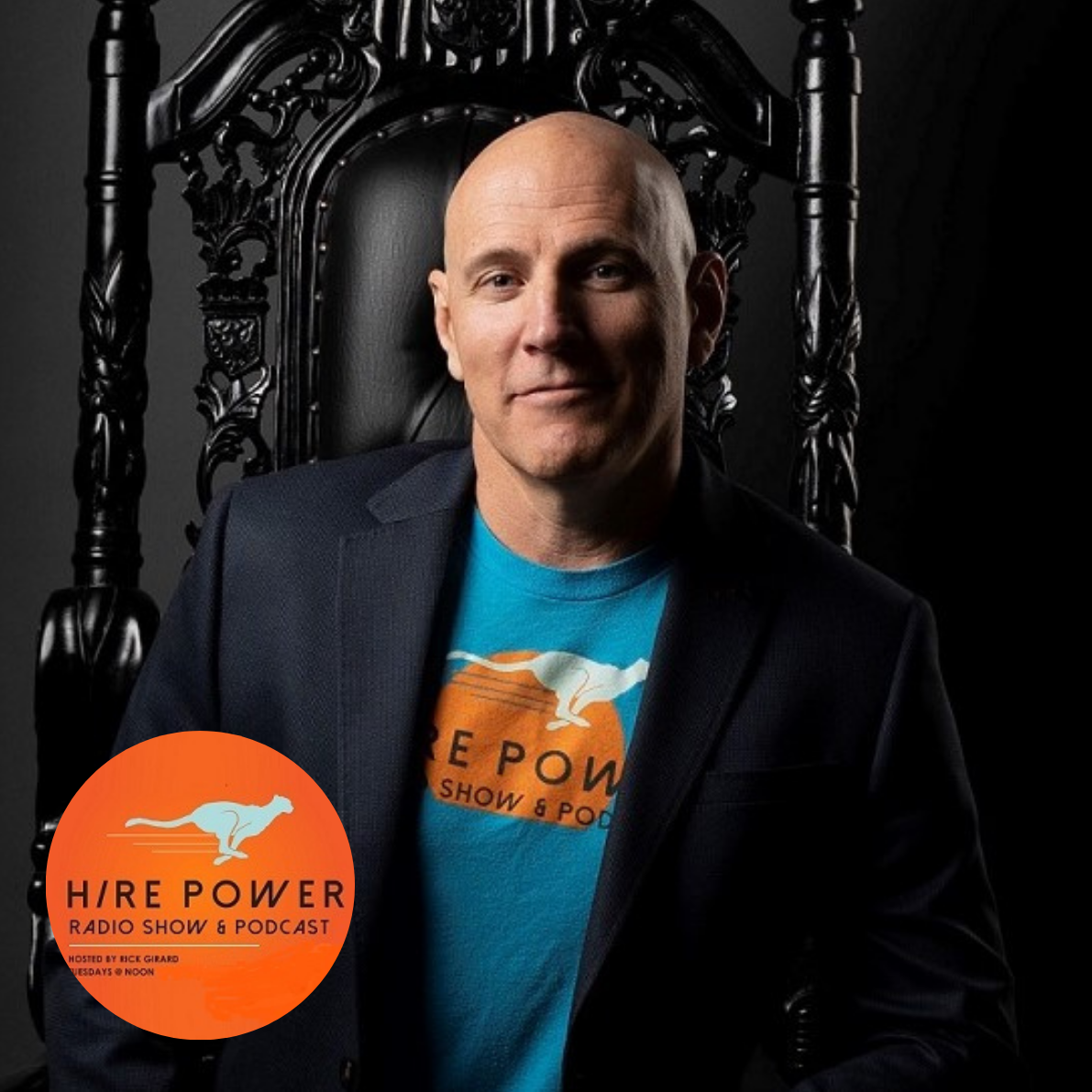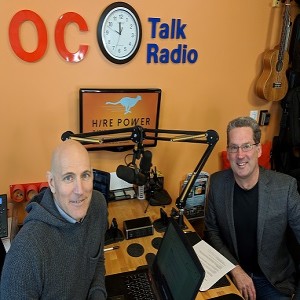
Welcome to the Hire Power Radio Show, where entrepreneurs and business leaders learn to hire with confidence and precision. Hosted by Rick Girard, this show is your go-to resource for avoiding costly hiring mistakes and securing the right talent to drive your company’s success. We dive deep into hiring challenges each week, featuring candid conversations with top-performing rebel entrepreneurs, disruptors, and industry experts. Join us every Tuesday at noon (PT) on LinkedIn Live for actionable insights, proven strategies, and the latest trends to give you the hiring edge. Subscribe now and join the movement to transform your hiring game. Do you have thoughts or questions? We’d love to hear from you!
Episodes

Thursday Jan 10, 2019
Craig Weber: Interviewing for Conversational Capacity
Thursday Jan 10, 2019
Thursday Jan 10, 2019
Conversational Capacity is the ability to balance Candor and Curiosity under pressure. Critical elements to every entrepreneur and business leader who are building an organization. And yet this element is often overlooked in the hiring process.
The great news is, it can be taught!
Today’s Quote:
"The single biggest problem in communication is the illusion that it has taken place." - George Bernard Shaw
Show Guest:
Craig Weber is the author of the best-selling book, Conversational Capacity: The Secret To Building Successful Teams That Perform When The Pressure Is On (McGraw-Hill, 2013) and Influence In Action: How to Build Your Conversational Capacity, Do Meaningful Work, and Make A Powerful Difference (McGraw-Hill, 2019) (Amazon.com). He is also the founder of The Weber Consulting Group, an alliance of experts committed to helping people build more resilient, healthy, and agile organizations. He helps people and teams dramatically improve their performance by treating dialogue as a discipline.
He works with people and teams from such diverse organizations as Boeing, The Royal Bank of Canada, Kaiser-Permanente, PWC, The CDC, the Pancreatic Cancer Action Network, and Los Alamos National Labs. He’s also working with legislators in an expanding list of states to help them engage in more constructive policy debate.
Episode highlights:
- What is Conversational Capacity & Why is it important
- How do you interview someone and accurately evaluate their conversational capacity
- What our audience can implement today to hire & manage stronger
What is conversational capacity?
- Definition 1: Constructive, learning-focused dialogue about difficult subjects, in challenging circumstances, and across tough boundaries.
· Definition 2: The Sweet Spot. Where candor and curiosity are in balance. Open, honest, direct, yet open-minded, humble, and eager to learn. This is where the best learning occurs. Smart people working smart. - Elements / Communication Traits
- When triggered: MIN Low candor. WIN Low curiosity.
- Need the ability to remain balanced. Everyone struggles, but often in very different ways.
Why is it important?
- Defines teamwork. A team that can’t communicate when the going gets tough isn’t a team.
- Why good intentions are never enough: The gap between how people believe they behave bow they actually do.
- Work the issue on both sides: Hire for Attitude and personality (fit) and then build your team’s conversational capacity.
o Hire right, then create a “Conversational Code of Conduct” – clear behavioral norms; formal or informal– to align team behavior with organizational strategy.
How do you recognize and evaluate
- Evaluation of the process
- Well thought through the process
- Preparation emphasis- prep call beforehand
Interviewing for Conversational Capacity
- Locate evidence of past experience
- Personality Assessment
- Behavioral Interview - questions
- Tell me about a time you had to give negative information up the chain to your boss. How did you handle it? What did you say?
- With a colleague?
- To someone who you managed?
- Tell me about a time you were really wrong about something or someone.
- What was your family dinner table like growing up?
- Mock Interview!
- People can learn to converse in a more disciplined, balanced manner. There are skills.
- To be good at working in the sweet spot, everyone needs to do some work. If someone is UNWILLING to do that work, well, let’s just say there are some people you’d prefer were working for your competition.
- CCOC
Key Take Aways:
- conversational capacity needs to be on your management dashboard
- It affects every aspect of your organization’s performance from decision-making, to managing change, to running meetings, and implementing strategy.
- Hire the right people and then make sure you manage them in a way that allows them to bring their best work to your business.
- Get the right people around the table (ability to learn; right temperament, etc, and then build CC of team. Each person will have to do some work to stay balanced.

No comments yet. Be the first to say something!